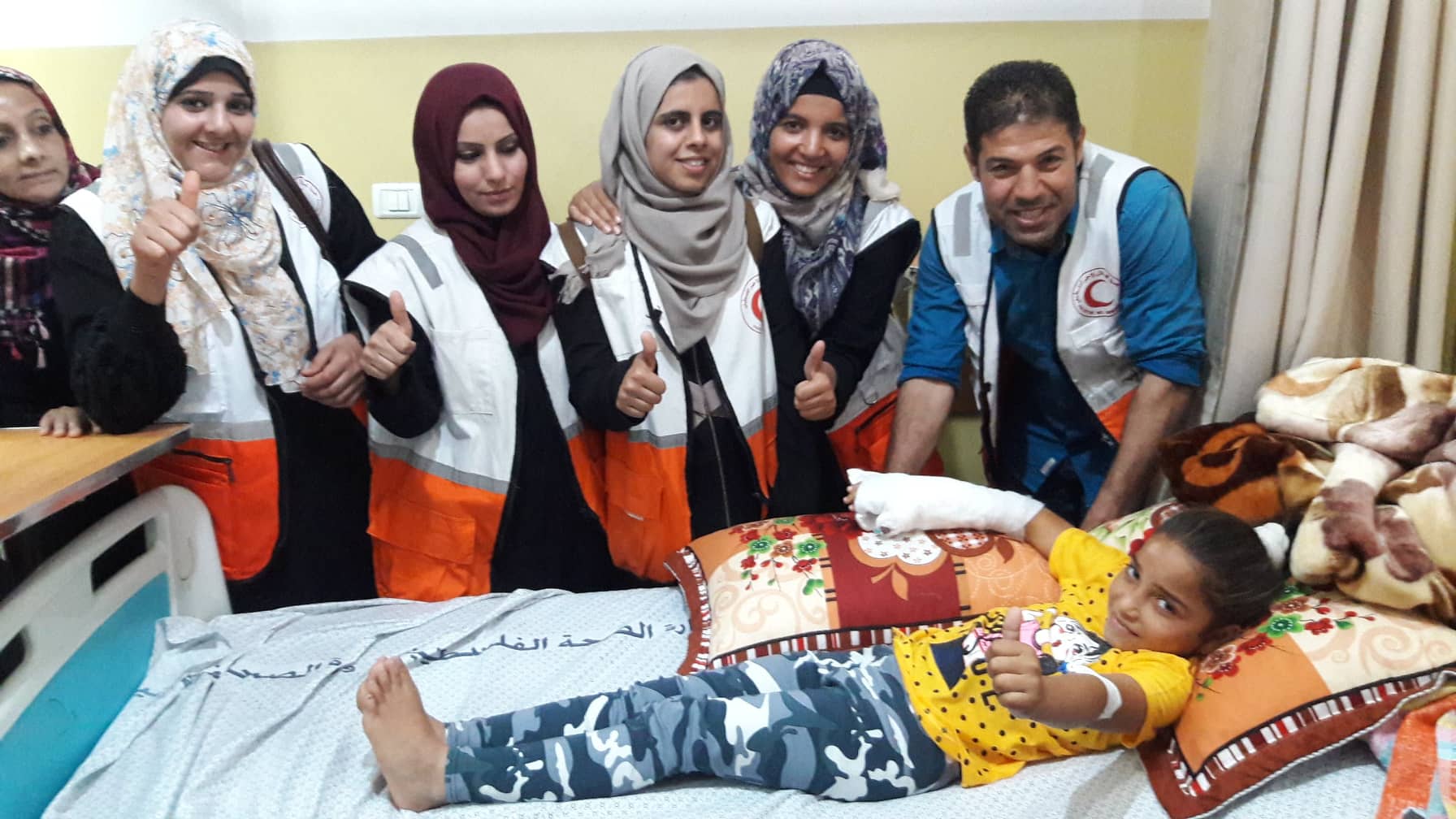
By : Ra’ed Al Nims
“I cannot take it anymore. I cannot continue doing this”, cried out volunteer Mohamad Al Za’aneen (37) who works with PRCS’ Psychological First Aid Team in the Gaza Strip.
Mohamad is a psychosocial worker who started volunteering with PRCS’ Psychosocial support Department back in 2014, following the Israeli war on the Gaza Strip. Like many of his colleagues, he has been offering psychological assistance to patients wounded during the peaceful March of Return protests which started on March 30th along Gaza’s eastern borders, in line with the Department’s Psychological Intervention Contingency Plan which aims at allaying the pain of wounded Palestinians treated at hospitals or convalescing at home.
“I was heading for a nervous breakdown. A painful scene I witnessed at a hospital in the northern Gaza Strip on May 14, 2018 devastated me. Two wounded persons were being wheeled along a crowded corridor, and the two trolleys bumped into each other and both patients fell off. This incident, like many others before it, made me lose focus. It also both saddened and angered me. I stopped talking and stood there looking at the faces around me: doctors, nurses, patients, wounded people. It was as if time had stopped. All I could see and smell was blood. All I could hear was the moaning of patients and the soft cries of their relatives. I could not take it anymore and I nearly collapsed. One of my colleagues held me and led me out of the Emergency and Accident Ward”, Mohamad said.
Ms. Hidaya Hamad, who coordinates the work of the intervention team in the northern Gaza Strip, said: “As soon as we saw that Mohamad had collapsed, we led him towards the hospital’s garden and tried to make him as comfortable as possible. He spoke about the incident he had just witnessed and how it has impacted him. I told him it was normal for him to need a break and that he should rest and take care of himself before going back to work again so he can efficiently help others recover”.
Speaking about his work, Mohamad said: “Providing Psychological First Aid is very important. It is also very hard. What I see at work haunts me at home. When the protests started, I was very tense and edgy, especially with my kids. I asked my wife not to receive any guests because I needed time alone".
He added: "However, thanks to the sessions organized by my Department, I was able to regain my composure and to adopt a more positive attitude towards my family. Our line of work requires us to listen to patients and to show them that we are close to them, this way they feel more secure. We also facilitate communications between them and their families, and provide them with follow-up care once they have been released from hospital. Our pain goes away when we see that we can make a patient smile or a wounded child laugh. One can say that we plant the seed of hope in the lives of the wounded and their families. We love our work and will continue to carry out our mission despite all pain and suffering”.
End.